How Not To Be A Frog In A Well: Chinese/German/Buddhist Philosophy
Interview by Richard Marshall.
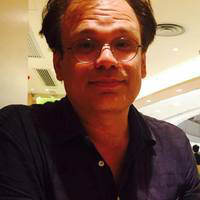
'Hegel claimed that it would have been better if the Analects of Confucius had never been translated so that its reputation for moral wisdom could have been preserved. Hegel and Rosenzweig belong to what could well be described as the religiously motivated rejection of non-Western forms of thought; they lack the grandeur and height of God and the individual dignity of the person that they respectively associate with Christianity and Judaism.'
'Zhang Junmai (Carsun Chang, 1887-1969) is an undervalued yet remarkable philosopher and political thinker. Neglected in Chinese academic philosophy, his life and thought are primarily studied in twentieth-century Chinese political history that concentrates on his political activities on behalf of Chinese social democracy, as a leading voice of the social democratic “third way” alternative to the nationalists (GMD) and communists (CCP), and as an advocate of the fundamental role of human rights in society who drafted the most progressive constitution in Chinese history in guaranteeing the full force and range of political, social, and economic rights.'
'Both Nietzschean and Confucian ethics aim at overcoming deeply inculcated affective conditions such as ressentiment. They diverge in how to analyze and transform individual and social moral psychology. The asymmetrical ethical priority of the other person is the means to genuine self-cultivation in Confucian ethics.'
'The exceptionalism of Western philosophy is an ideological construct as contrary historical examples are excluded from its narrative. To briefly indicate a few cases: the repeated historical interruptions and transformations that make the very idea of one “Western tradition” a myth, the transmissions of classical Greek philosophy through Islamic philosophy, the adaptation of Indian and Islamic mathematics that makes modern mathematics possible, and the historical interactions of Islamic, Indian, and Chinese philosophy with the European Enlightenment.'
'Heidegger’s logic of the first and other beginning, which can only be a confrontation with the first Greek beginning, does not allow for non-Western philosophy as philosophy as it was initially articulated in the 1930s. He does note later that non-Western forms of thinking have their own “great” beginnings and their own height, yet they still cannot be considered philosophy.'
'Emptiness and nothingness, which are not the same, are either taken as negative or derivative concepts in the Western intellectual tradition with a few significant exceptions. Among these is Heidegger. There is a Daoist-like understanding of the nothing as primordial and constitutive in his inaugural lecture “What is Metaphysics?” (1929, the same year that he was reading from the Zhuangzi at gatherings)'
Eric S. Nelsonis interested in Chinese, German, Jewish, and intercultural philosophy, in particular ethics and hermeneutics. Here he discusses how modern German philosophy received Confucianism, Zhang Junmai, resentment in Nietzsche and Confucianism, Buber, Heidegger and Daoism, Heidegger and Daoism, Misch’s understanding of Confucius and Zhuangzi, Heidegger and Dilthey, whether classical phenomenology helsp us understand Asian philosophies such as Buddhism and Daoism, nothingness and sacredness in Heidegger and Chan Buddhism, links between Levinas’s ethical approach and Confucian ethics, and whether philosophy has anything to contribute to debates about environmental issues.

3:AM:What made you become a philosopher?
Eric S Nelson:Well, I must admit that I never imagined I would become a philosopher. No doubt many others would be surprised by this outcome as well. A series of winding Holzwege, lucky and unlucky accidents, and inspiring teachers and friends led me to this current position. I wanted to give up on philosophy a number of times along the way. First, there was the stress of the job-market for numerous years. Second, I was told frequently enough that continental and non-Western philosophy are not “real philosophy” (whatever that might be) and my research might better belong in cultural or area studies, which is where philosophers committed to Western exceptionalism locate everything non-Western. I am fortunate that my path twisted and turned to an academic environment that nourishes engaging in non-Western and intercultural philosophies that have so much to teach us, and in particular Western philosophers who tend to be (to speak too honestly perhaps) limited and provincial in their conception of what should count as philosophy and its history. They are like the frog in the well, to use a metaphor from Zhuangzi, in believing the well to be the entirety of the world. I was fortunate to find a cosmopolitan situation open to pursuing philosophy beyond Eurocentric and Anglocentric prejudices. The last four years in Hong Kong have been liberating for my research, writing, and state of mind.
This journey has been an eccentric one. I did not come from an academic family. It did have many religious and political differences in it that produced many mostly friendly arguments at family gatherings and led me to think about religious and political truth and how to know it. We were not exposed to philosophy at my public high school in Chicago. I discovered Bertrand Russell’s Why I am Not a Christianone-day at a nearby used bookstore on a cold winter day and found Russell’s skepticism and libertarian socialism expressed in a number of his popular works appealing. My first philosophy course was on the philosophy of science. Reading Feyerabend’s Against Method and Science in a Free Societyconvinced me to study philosophy further, although I had no clue that it would lead to a major, graduate school, and a vocation.
I had a number of wonderful teachers at Northwestern University who inspired my thought and encouraged me to apply to graduate school, especially John McCumber and David Michael Kleinberg-Levin. McCumber was already developing his insightful critiques of the politics of academic philosophy that culminated in Time in the Ditch: American Philosophy and the McCarthy Eraand The Philosophy Scare: The Politics of Reason in the Early Cold War. These two works remain pertinent as institutional academic philosophy is not as innocent nor progressive as it presents itself to be. Kleinberg-Levin introduced me to classical phenomenology and non-Western philosophy as a genuine form of philosophizing, discussing the phenomenology of Native American shamans, Dzog Chen meditative practices, and African conceptions of embodied perception and spatiality. He taught his students that philosophy is a way of reading sources rather than consisting of a limited set of canonical Western texts or the use of a restricted number of argumentative techniques. Rudolf Makkreel is a true scholar and inspirational teacher. As my dissertation director at Emory University, he guided me to a deeper appreciation of the importance of historical context and nuance for philosophical thinking as well as the role of less canonical figures and discourses in the formation of modern Western philosophy. This approach remained informative for me in my recent book Chinese and Buddhist Philosophy in Early Twentieth-Century German Thought(hereafter, CBP). It traces the reception of East Asian philosophy in the works of well-known and barely remembered philosophers.
It is unfortunate that philosophers prefer to talk about themselves and ignore how philosophy is primarily a social dialogical practice in which we learn, adopt, and appropriate from others. All interpretation is appropriation; the key question is its motivation and aim. There are too many people to thank for their influence and inspiration. A very good friend, Zhao Dongming, inspired me through our conversations to systematically study Chinese philosophy and introduced me to the Zhuangzi, a text that is more radically self-reflective, self-deconstructive, and “infinite” in its aspirations in undoing fixations and limiting perspectives than what is found in the Western canon. Whenever I thank him for this, he jokes that I reintroduced him to Marx as a philosophical thinker (after all he had heard about Marx his entire life). Roger Ames and Chung-ying Cheng stimulated my research in Chinese and comparative philosophy for which they have my enduring gratitude in opening up the horizon of my own thinking. Given the compulsion towards identity and allergy to alterity prevailing in academic philosophy, I want to particularly express my gratitude to Namita Goswami and Bassam Romaya for encouraging my work on intercultural philosophy and the philosophy of non-identity when I was facing the most distress concerning the question whether I belonged and should continue in philosophy.
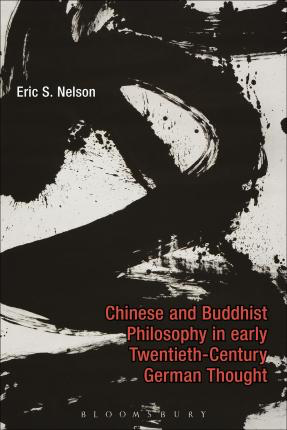
3:AM:How did modern German philosophy receive Confucianism? Was Rosenzweig typical when he called Confucianism a boring and mediocre example of ethical thought, lacking religious sublimity and height?
ECN:Thank you for this opportunity to discuss CBP. As an author one cannot be sure of how a book will be received, if it is received at all. Your question addresses a primary theme of chapter one concerning the mixed and controversial reception that Confucius and Confucianism received in the West. Franz Rosenzweig’sStar of Redemptionis a powerful and insightful work that should be read more often. It needs to be interpreted in relation to its historical conditions. I do not want to give the impression that it should be dismissed as a philosophical work when I examine his harsh treatment of non-Western philosophies that was contested by his friend Martin Buber in their correspondence. Rosenzweig, one of the profound critics of Hegel, is surprisingly closest to Hegel in his dismissive discussions of Chinese, Indian, and Islamic thought. African thought fairs even worse in this conception of the history of philosophy. Concerning the formation of the modern idea of philosophy and its canon, I highly recommend reading Peter K. J. Park’s Africa, Asia, and the History of Philosophy Racism in the Formation of the Philosophical Canon, 1780–1830.
Hegel claimed that it would have been better if the Analectsof Confucius had never been translated so that its reputation for moral wisdom could have been preserved. Hegel and Rosenzweig belong to what could well be described as the religiously motivated rejection of non-Western forms of thought; they lack the grandeur and height of God and the individual dignity of the person that they respectively associate with Christianity and Judaism. These narratives are not only historically problematic in the past; they concern the present. Each time someone claims that the Chinese are merely imitative and not capable of creativity, merely collective without any sense of individuality, that an idea does not matter because it is only Chinese, and so on, they are reproducing the Eurocentric and Aryanist (it should not be forgotten the common use of such terms across the West until 1945) racial schemata that emerged in the Enlightenment as reason and freedom were increasingly identified as unique capacities of a particular race and civilization that had the duty to rule over lesser ones.
In this context, the other voices that contested the ethnocentric model should be remembered. CBP mentions a number of such figures in the hope that they will receive further attention. A fascinating example is Josef Popper-Lynkeus (1838-1921). He appealed to Chinese Confucian humanism as more genuinely ethically universal, since it is not limited to the Aryan world, to confront European colonial and capitalist coldness and cruelty. He argued that the European accusations against the Chinese (the purported spiritual coldness and mediocrity, the lack of creativity, freedom, imagination, and individuality) revealed the incapacity and limitation of the European. Anyone who is hermeneutically receptive to understanding Chinese philosophy, literature, and art, as Popper-Lynkeus noted, can recognize its intense creativity, individuality, and emotional passion even as these remain non-identical to their modern European forms.
Direct appeals to racial superiority are of course difficult to find in contemporary conventional liberal politically correct academia. They still exist in private conversations, as many colleagues can attest from job interviews and other interactions. Furthermore, racialist and culturally essentialist schemata are encoded in the deep structures of contemporary philosophical discourses and institutions. This social-historical nexus, perpetuated in conventional liberal Enlightenment discourses through the assumption that only one civilization is universal and thus genuinely human, needs to be confronted as it is exemplary of a persistent Western misunderstanding of non-Western philosophies. They are defined as non-philosophy by purportedly lacking a key element constitutive of Western philosophy whether it be true religiosity, individual freedom, the proper use of concepts and logic, the primacy of self-reflection and self-criticism, or a combination of these elements. This is reproduced not only in the history of philosophy from Kant and Hegel to Husserl, but in the majority of the histories and introductions that are published each year.
Chapter one of CBP illustrates the dominance of this Eurocentric vision in the exclusion of Confucianism from philosophy. To briefly sketch this situation, the absolute priority of the West can be explained in secular modernist language (Husserl) or identified with a uniquely Christian (Hegel) or Judeo-Christian historical transmission (Rosenzweig). There are, however, underappreciated counter- or minority traditions that question this priority from Leibnizand Wolff (who argued for the superiority of Chinese thought in some domains) to Buber and Georg Misch (who perceive how philosophical self-reflection, dialogue, and critique occurs across a variety of historical contexts. Confucian ethics and Chinese social-political life have been contested in Western thought as they were perceived as models of an ethics rooted in natural theology or secular rationality rather than in revelation and faith. Secularists (Voltaire, Popper-Lynkeus, Neurath, among others) utilized Confucian ethics as an example that demonstrates the possibility of a flourishing form of secular ethical life, whiletheologicaluniversalists (Leibniz, Wolff) and dialogical thinkers (Misch, Buber) perceived its humanistic religious-ethical tendencies that promote recognizing autonomy, dignity, and even an individuality that Western discourses typically deny to Chinese and other non-Western peoples. I hope to analyze these questions further in a future work on Leibniz, Wolff, and the interpretation of Chinese philosophy.
3:AM:Zhang Junmai is likely to be unknown to most readers. Can you say how he fuses Confucianism with German Idealism and what impact this has had on Chinese philosophy?
ESN:Zhang Junmai (Carsun Chang, 1887-1969) is an undervalued yet remarkable philosopher and political thinker. Neglected in Chinese academic philosophy, his life and thought are primarily studied in twentieth-century Chinese political history that concentrates on his political activities on behalf of Chinese social democracy, as a leading voice of the social democratic “third way” alternative to the nationalists (GMD) and communists (CCP), and as an advocate of the fundamental role of human rights in society who drafted the most progressive constitution in Chinese history in guaranteeing the full force and range of political, social, and economic rights. This political activity led to the repression of his thought in both the nationalist and communist Chinese world. He was forced into American exile, where he published books and articles on topics such as contemporary Chinese politics and Neo-Confucianism. These historical circumstances perhaps clarify why his thought is underemphasized in contemporary analyses of twentieth-century Chinese philosophy and the New Confucian movement.
As Zhang is considered by some a father of modern Chinese democratic thought, he was and continues to be a controversial and sensitive figure in the Chinese context. He cooperated with the GMD against the Japanese invasion and yet was put under house arrest a number of times. He was attacked by Mao Zedong in a speech in 1940 as a “metaphysics monger,” evoking Zhang’s role as the primary defender of life-philosophy and metaphysics against the scientism of the Chinese pragmatists Ding Wenjiang and Hu Shih in the mid-1920s debate concerning life and scientism. Although in 1946, on his sixtieth birthday, Zhou Enlai sent him a longevity plate with the words “the longevity of democracy,” the CCP listed him as a dangerous reactionary intellectual in 1948.
In the current situation, Zhang is a more progressive and egalitarian thinker than contemporary New Confucianism that mediates liberal democracy and equality with meritocratic hierarchy. Merit is associated with fairness in traditional China, as anyone with capacity and education could rise to higher stations through an examination system. Merit is also distorted in class society and under capitalist conditions. Hierarchy and respect for authority are significant but not the only dimensions of classical Chinese discourses. There are reversals and overturning of hierarchies in Zhuangzi, universal egalitarian ethical principles in Mozi, the priority of the people and the legitimacy of overthrowing unjust monarchs in Mencius, or the idea of balance in the Yijingas demanding raising the abject and lowering the high.
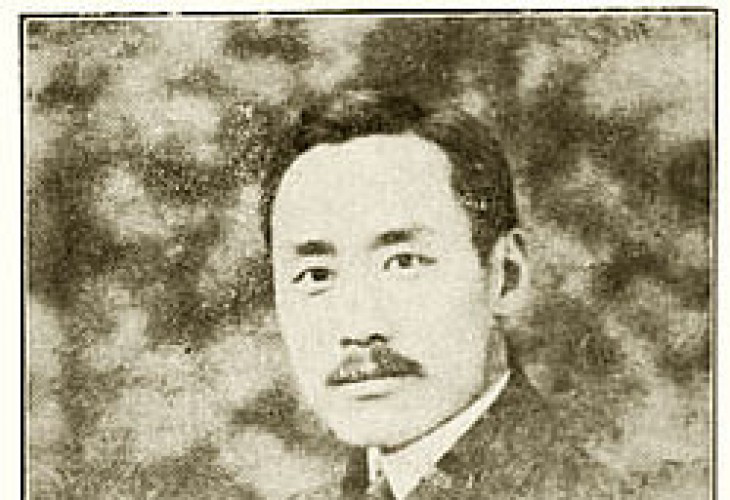
[Zhang Junmai]
Initially chapter two of CBP was conceived as analyzing Rudolf Eucken, Hans Driesch, and their encounters with Chinese philosophy and philosophers. Eucken and Driesch were well-known figures in their own times and in contact with East Asian students and visitors after the end of the First World War. Eucken won the Noble Prize for Literature in 1908. His reputation was damaged by his fervent support for the German cause in World War One and he appeared old-fashioned and out of date to German philosophers in the 1920s. Yet his neo-Fichtean life-philosophy, emphasizing the priority of practical reason and an idealism of worldly action, was compelling to East Asian intellectuals trained in the Confucian “practical idealism” of Wang Yangming (1472-1529). They were in search of ways of responding to Western political and cultural colonialism and interested in Western philosophies that shared affinities with East Asian philosophical discourses. Driesch was the foremost proponent of vitalism in early twentieth-century philosophy, and—along with Bergson and James—well received in East Asia. Driesch was one of the three Western philosophers invited to China in the 1920s. The visits of the other two, John Dewey and Bertrand Russell, are better remembered, and thus I sought to remedy this.
A key ethical and hermeneutical task of philosophy, according to the New Confucian manifesto, is “reviving the perished and restoring the broken.” “A Manifesto for a Re-appraisal of Sinology and Reconstruction of Chinese Culture” is a short provocative statement concerning the modern fate of China and the prospects for Chinese philosophy that I recommend to Western philosophers who want to understand the actuality of modern Confucian philosophy. It was published in 1958 by the four exiled (from mainland China) New Confucian philosophers: Zhang Junmai, and Tang Junyi, Mou Zongsan, and Xu Fuguan (three students of Xiong Shili). The New Confucians fused Confucian, Buddhist, and German Idealist (especially Kant) argumentative and interpretive strategies. For Zhang in the 1920s, in the book he coauthored with Eucken Das Lebensproblem in China und in Europa(1922), Kantian notions of practical reason and the good will, to give a few brief examples, evoked Confucian ideas of appropriate reflectively-guided action and the goodness and sincerity of the heart-mind. Zhang was pioneering. He linked Confucian and Kantian ethics as well as the works of Mencius and Wang Yangming with social-democratic politics and constitutional rights-oriented legal thinking. It was, however, Mou Zongsan who wrote systematic treatises on Kant’s Critiques and systematically formulated a Kantian-Confucian-Buddhist synthesis that shaped modern Chinese philosophical discourse, in particular in Hong Kong and Taiwan, while Zhang was introducing the English-speaking world to Neo-Confucianism in American exile.
It became clear to me in researching this chapter in archives in Germany that Zhang’s encounters with Eucken and Driesch, along with the Sinologist Richard Wilhelm, provided an illuminating way to address this overlooked moment in the history of intercultural philosophy that serves as a reminder that philosophizing is already—historically speaking—intercultural. This only needs to be emphasized in a conception of modernity that has forgotten and repressed its non-Western sources and interactions. It is an ongoing imperfect dialogue and exchange and not a one-way street dominated by paradigmatic or obscure Western philosophers. The history of comparative and intercultural philosophy must break with the model that Western philosophy serves as the only basis of dialogue, critique, and valuation.
3:AM:You find links between ‘resentment’ as found in Nietzsche and as found in Confucianism. What role do you detect in Confucianism and how does it differ from the role it’s given in Nietzsche?
ESN:According to Enlightenment racial theorizing, which coincided with Western intervention and colonial expansion across the globe, the so-called “mongoloid” races are characterized by a despotism of the one and an egalitarianism of the many slavishly ruled by that one. The racial thinking of Christoph Meiners (1747-1810) influenced Kant’s racial anthropology and its categories remained operative in Hegel’s philosophy of history and history of philosophy. Hegel rejected direct racial and anthropological interpretations in favor of emphasizing the superiority of Western culture and spirit that discovered and realized the freedom of the individual in contrast to the slavish collectivism of other peoples. Only the West overcame human slavery, he contends, while it was enslaving the world in fact. Similar tropes are found in Nietzsche’s few remarks about the Chinese. While Nietzsche mocks and opposes German racism, Aryanism, and anti-Semitism, his thinking plays a dangerous game with racial categories. It does not in my mind adequately break with them insofar as it remains beholden to the same racial schemata. A number of European philosophers escape vulgar racial ideology, rejecting it as merely biological and anthropological, by spiritualizing it. They do not place its foundations into question. There are interesting counter-instances. Hans Driesch and Margarete Driesch remarked in Fern-Ost als Gäste Jungchinas(1925) that Nietzsche’s “good European” is still all too European, and they critiqued the racial and cultural essentialism that posit differences in essence and kind between races and cultures that are only different in configuration and degrees. In this perhaps overly naïve assessment, described in chapter two, Jews and Germans had formed and could continue to exist as a flourishing community together in Germany just as West and East could form a new “fusion” civilization adopting and transforming elements from both.
Nietzsche’s racial claims about the Chinese character concern patterns of “breeding” rather than fixed racial essences. This allows Nietzsche, reversing the usual teleology that identifies China with the most ancient and foreign, to diagnose the “Chineseness” of European modernity: Kant (the “Chinaman of Königsberg” remark was not intended as a compliment), democracy, socialism, and so on, are expressions of the “Sinification” (equalization and massification) of Europe rooted in ressentiment.
The Chinese, along with the Germans and Jews (as the highest example) according to one passage in the Genealogy of Morals, are depicted as priestly peoples shaped by ressentiment. The identification of the Chinese with a condition of resentment (which as a feeling is related to but not identical toressentiment as a structurally reproduced condition) occurs in other European and twentieth-century Chinese authors. Nietzsche’s analysis of Chinese ressentimentinfluenced Lu Xun, a modern Chinese author (I suggest reading the short story “A Madman's Diary” from 1918 if you have not yet), in his critique of traditional Confucian China. The idea of Chinese ressentiment, as Nietzsche did not know but Lu Xun knew well, is a paradoxical one given that one of the defining tasks of Confucian self-cultivation is the moderation and overcoming of resentment as well as other negative affective states such as jealously, envy, and hatred. A condition much like Nietzsche’s ressentiment, as a reactive emotional condition, is found in Confucian depictions of the inferior or ignoble person (xiaoren) and the “petty scholar” (xiaoru).
In accordance with the Westernizing May Fourth Movement (1918), which in many ways prefigured the dream of the cultural revolution to eliminate the power of the Chinese past over present life, Lu Xun might have believed that all Confucians are intrinsically narrow, petty (xiao), and sour (suan). But a more appropriate and modern approach to the past and future of Confucianisms, as articulated by Zhang and the New Confucians, allows us to follow a different hermeneutical route. Both Nietzschean and Confucian ethics aim at overcoming deeply inculcated affective conditions such as ressentiment.They diverge in how to analyze and transform individual and social moral psychology. The asymmetrical ethical priority of the other person is the means to genuine self-cultivation in Confucian ethics. Self-cultivation is the means to be able to genuinely recognize and respect others in benevolence (ren). One can only establish oneself through establishing others, and establish others through establishing oneself, according to Analects6.30. The nuanced ethical and moral psychological descriptions and interpretive analysis in Confucian sources of asymmetrical and symmetrical forms of reciprocity and distinction between self and other is lacking in Nietzsche’s diagnosis according to my analysis in chapter three.
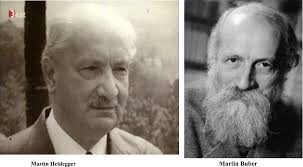
3:AM:What’s the link between Buber, Heidegger and Daoism? In particular, are Buber and Heidegger indebted to Lao-Zhuang for their critical encounter with technological modernity – and do they explicitly admit that they are?
ESN:This question touches on a noteworthy question in the contest between intercultural and Eurocentric philosophy: did Buber, Misch, or Heidegger learn anything from reading and writing about Daoist sources or did they impose European conceptuality onto Chinese material, only discovering what they themselves imagined and projected?
I prefer the word “intercultural” to the more essentialistic and less hermeneutically nuanced notion of “multicultural” that suggests an unmediated side-by-side of cultures that are distinct in kind, subsuming the diversity of and tensions between Chinese philosophies into a unified and monolithic Chinese essence. The intercultural strategy traces moments of encounter, contact, touching, appropriation, and “intertextual referentiality” between discourses and forms of life.
The strong version of the Western exceptionalist thesis maintains the separation and autonomy of Western philosophy. It has its own unique internal telosfrom ancient Greece to the modern West in thinkers including Hegel, Husserl, and Heidegger. The strong thesis is interconnected with their teleological conceptions of history that continue to inform Eurocentric critiques of the history of Western philosophy, problematically considered as a unified historical whole in need of destruction and deconstruction, articulated in the works of Heidegger, Levinas, Rorty, and Derrida, among others.
The exceptionalism of Western philosophy is an ideological construct as contrary historical examples are excluded from its narrative. To briefly indicate a few cases: the repeated historical interruptions and transformations that make the very idea of one “Western tradition” a myth, the transmissions of classical Greek philosophy through Islamic philosophy, the adaptation of Indian and Islamic mathematics that makes modern mathematics possible, and the historical interactions of Islamic, Indian, and Chinese philosophy with the European Enlightenment.
The reception of the Daodejing andZhuangziin early twentieth-century German philosophy is not only historically fascinating and curious, it allows one to address questions of the intercultural and monocultural practice of philosophy. Philosophy, as reflection, intends to be more than the repetition of a cultural pattern while remaining entangled and in tension with the cultural patterns in which it occurs. If this is the case, to pose the question in a radical way, can there be any genuine encounter at all between different cultures or are there only monocultural projections onto the other? Hermeneutics indicates that understanding and interpretation are contextually-historically situated, anticipatory/projective, and appropriative.
Ethnocentrism/nationalism and multiculturalism are both hermeneutically problematic in presupposing pure social-cultural domains that should not be transformed and appropriated through their interaction in dialogue and conflict. Ethnocentric and cultural purists are already too late: Europe, China, or any other projected ethnic-cultural unity, has always had others and a long intercultural history behind and ahead if it. Against the reification of identity that prioritizes race, nation, and culture, I track their entanglement with non-identity and alterity.
The recent study of history has developed the notion of “entangled histories.” I adopted this in CBP, along with Julia Kristeva’s conception of intertextuality, by tracing intercultural entanglements between “Western” and “Eastern” philosophy. Technological modernity, and questions of spontaneity and technique, is the hermeneutical situation that opened up a particular way of reading and questioning the Zhuangzithat is characteristic of the twentieth-century. This is a concern seen in the understanding of both translators of the Zhuangziinto the German language, Buber (on the basis of two English translations) and Richard Wilhelm (directly from the Chinese), as well as thinkers such as Hermann Graf Keyserling (who in one fascinating passage of Das Reisebuch eines Philosophendiscusses Cook Ding while describing the Chicago stockyards) and Heidegger.
Jonathan R. Herman, in a wonderful book called I and Tao, and chapter four of CBP trace how Buber’s hermeneutical openness to non-Western philosophy and religion lead him to translate the Zhuangziand Pu Songling’s Strange Tales from a Chinese Studio that Buber entitled Chinese Ghosts and Love Stories. Buber interpreted these two texts in relation to Hasidic story-telling, mysticism, and philosophy. One might call this reading “Hassidic Daoism.” Although he appears to abandon Zhuangzi when he abandons mysticism for ethics, his ethics of encounter and dialogue, articulated in I and Thou, bares traces of the Zhuangziin a number of images, expressions, and strategies. Let’s now turn to Heidegger and Lao-Zhuang Daoism…
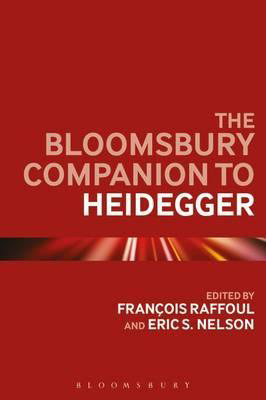
3:AM:Does understanding this connection with Daoism deepen our understanding of what Heideggermeant by the term ‘dwelling in the world’?
ESN:Xia Kejun argues in his remarkable book A Waiting and Useless People: Zhuangzi and Heidegger’s Second Turn(Beijing: Peking University Press, 2017), currently available only in Chinese, that Heidegger undergoes a Daoist influenced turning to his later mature understanding of releasement (Gelassenheit) and dwelling in the closing years of the Second World War. My claim is less drastic, although it is already too much for those interpreters of Heidegger who will not admit that Heidegger was influenced by non-Western philosophy. Heidegger is interpreted in chapters 4, 5, and 6 as an ambivalent source for intercultural philosophy. He appears simultaneously open to learning from and appropriating Daoist images and arguments, which we know he read extensively from the 1920s to the 1950s, while denying its status as philosophy given his account of the Greek-Occidental essence of philosophy, its origin, history, and fatefulness.
The historian Heinrich Wiegand Petzet (1909-1997) narrated in his Encounters and Dialogues with Martin Heidegger, 1929-1976 how Heidegger visited Bremen in October 1930 to give a lecture that would eventually become “On the Essence of Truth” (Von Wesen der Wahrheit). He tells how Heidegger surprised everyone at a dinner party after the talk by asking his host for a copy of an obscure book called the Parables of Zhuangzi (Reden und gleichnisse des Tschuang-tse) that has been translated around two decades earlier by Buber in 1910. Heidegger proceeded to read the Zhuangzian story about the joy of fish and the joy of watching the fish from the bridge above, a story that sets off a conversation between Zhuangzi and Huizi on the possibility of genuinely knowing the joy of fish, delving into its meaning for his audience. As in the famous description of the butterfly dream, this is not an expression of skeptical doubt, which is only one moment in the dialogue, but of the transformation of perspectives. Heidegger focuses on Zhuangzian uselessness, naturalness, and freedom/releasement in a fascinating dialogue written after the end of the Second World War in 1945: “Evening Conversation: In a Prisoner of War Camp in Russia, between a Younger and an Older Man.” Heidegger adopts strategies, images, and ideas from the Zhuangzi(which is cited in the conclusion) to interpret concepts of his own thought, arguably pulling them away from Meister Eckhart and Schelling and closer to early Daoist thinking (insofar as he understood it), and explore the “usefulness of the useful” and “necessity of the unnecessary” in the form of the useless person (perhaps himself at his point in his life) and a “useless people” (the defeated German people).
There are also three notable discussions of emptiness, the empty vessel, and the thing from 1943 to 1950 that rely on chapter eleven of the Daodejingin which emptiness (e.g., the empty hub of the wheel, the empty vessel, and the empty room) is the condition of the thing and usefulness itself. Heidegger repeatedly returned to affinities between his own way and the Daoist way, mediated through the translations of Buber and Wilhelm. Eurocentric skeptics claim this is projection, and Heidegger never moved from his own perspective in these encounters. Despite Heidegger’s limitations as an intercultural thinker, which are illustrated in CBP, he nevertheless strives to encounter what is being thought in these two Daoist works. They in turn have left at least resonances and traces in his later (as evident in writings beginning in 1943) ways of speaking about dwelling, the fourfold, nothingness/emptiness, and technological modernity.
3:AM:Heidegger makes much of the Occidental origins of philosophy but in the hermeneutical tradition Dilthey and Misch draw on Chinese and Indian civilizations as well to deliver a more pluralist account didn’t they? What do we gain from taking into account Misch’s understanding of Confucius and Zhuangzi? Does it suggest that Heidegger’s Greek monistic paradigm is limited and limiting – and do you think Heidegger was aware of this and led to his attempt to repudiate Dilthey in terms of alleged scientific positivism and aesthetic romanticism?
3:AM:Heidegger’s logic of the first and other beginning, which can only be a confrontation with the first Greek beginning, does not allow for non-Western philosophy as philosophy as it was initially articulated in the 1930s. He does note later that non-Western forms of thinking have their own “great” beginnings and their own height, yet they still cannot be considered philosophy. CBP has been criticized in one review for making too much of this point, as it could be considered merely a definitional problem or an issue of contemporary political correctness. I humbly disagree since the question of what is philosophy, and what does and does not count as philosophical, is a preeminently philosophical question. The current prevailing definition excludes most of the history and practice of Western and non-Western philosophizing. Western provincialism is consequently a betrayal of philosophy’s universal aspiration to know the self and potentially address all peoples in all times, and is enacted wherever there are practices of self and social reflection, critique, argumentation, and transformation. Support for the intercultural turn is found in the hermeneutical tradition itself from Leibniz and Herder to Dilthey and Misch. They advocate in distinct ways the multiplicity of forms of self-reflective life, instead of restricting it to the West, and philosophical pluralism. The plurality of life-worlds, forms of rationality, and multiplicity of possibilities for philosophical reflection and self-examination across different cultural milieus are interconnected claims in this tradition in contrast to the lineage of Hegel and Hussserl. In the hermeneutics of Dilthey and Misch, human expressions and objectifications are singular and unique and yet interpretable configurations and constellations of the intersecting forces of biological, social-historical, and personal life.
This historically-oriented pluralist tradition in German philosophy echoes the Confucian hermeneutics of self-cultivation in the conditions of historical life and the overcoming and transformation of perspectives expressed in the Zhuangzi. Misch is an underappreciated hermeneutical philosopher offering a significant alternative or correction to the monistic conception of philosophy at work in Husserl and Heidegger. Der Weg in die Philosophie(literally, “The Way into Philosophy”), first published in German in 1926, unfolds the multiplicity of philosophical origins in break-through experiences that interrupt the natural unreflective attitude and in critical self and social-reflection. The exclusion of non-Western philosophies, he contends, would exclude Socrates and classical philosophy itself that shares more with classical Chinese and Indian thought than modern Western philosophy that has divorced itself from the reflection on the needs and concerns of individual and social life. Misch remarked in a passage discussed in CBP: “The assumption that Greek-born philosophy was the “natural” one, that the European way of philosophizing was the logically necessary way, betrayed that sort of self-confidence which comes from narrowness of vision. The assumption falls to the ground directly [when] you look beyond the confines of Europe. The Chinese beginning of philosophy, connected with the name of Confucius, was primarily concerned with those very matters which according to the traditional European formula were only included in philosophy as a result of the reorientation effected by Socrates, namely, life within the human, social, and historical world. The task of the early Confucians was to achieve a rational foundation for morality which should assure humans their dignity and provide an ethical attitude in politics.”
Misch recognized manifold forms of rationality and diverse practices of cultivating and forming individual personality, as illustrated in his earlier essay addressing non-Western philosophy “Von den Gestaltungen der Persönlichkeit” (1911) as well as his monumental History of Autobiography. The latter work encompasses non-Western depictions of individuality and selfhood, contesting the Western discourses that claim individuality exclusively for the West.
The second part of your question refers to Heidegger’s interpretation of Dilthey. Dilthey is a key source for the development of the project of Being and Time, as the work of Theodor Kisiel has demonstrated. Heidegger’s last extensive examination of Dilthey’s philosophy occurred in his 1928-1929 lecture-course Einleitung in die Philosophie(Introduction to Philosophy). This lecture-course concerns the same topic as Misch’s book, how philosophy begins. Heidegger critiques Dilthey’s ontic pluralism and admixture of the empirical in favor of the oneness of the ontological difference of beings/being, rejecting the multiplicity of the philosophy of worldviews for philosophy as fundamental ontology. Heidegger’s “monism” is complicated in being referred through ontological difference. Heidegger’s way of speaking in the Einleitunghints that this is also a critique of Misch’s works in the 1920s, encompassing his account of the multiplicity of philosophical origins of “diverse provenance.” The philosophy of worldviews is a critical and reflective philosophy, however, rather than one that reduces philosophy to the anthropology and psychology of peoples and their conceptions and experiences of the world. The role of reflection and reason distinguishes the hermeneutical life-philosophy of Dilthey, Misch, and allied philosophers such as Helmuth Plessner from the vulgar life- and worldview-philosophy criticized by Heidegger.
3:AM:Does classical phenomenology help us understand better Asian philosophies such as Buddhism and Daoism as philosophy rather than as mytho-poetic and practical- traditional thought? Presumably Husserl and Heidegger wouldn’t wholly endorse such a view would they?
ESN:The phenomenological movementhas had a rich history interacting with non-Western philosophical and cultural discourses. In calling for the self-elucidation of experience, it has been remarkably open—compared to other Western philosophical movements—to engaging with the diversity of human experiences and lifeworlds. This is true to an extent with a number of its major classical thinkers such as Husserl’s interest in Buddhism, Heidegger’s engagement with Daoism, and Merleau-Ponty’sendeavor in “Everywhere and Nowhere” (1956) to articulate a global conception of philosophy beyond the confines of Western reason and previous phenomenology. There are too many phenomenological investigations of diverse cultural practices and discourses to mention here.
As chapter six of CBP explores, classical phenomenology has also had its limitations as a genuinely intercultural philosophy. Husserl, Heidegger, and Levinas maintain Eurocentric conceptions of philosophy as a Western inheritance and project tied to the identity of Europe. Europe, for Husserl, is universal and infinite, while Chinese and Indian cultures are merely particular and their thinking mytho-poetic and merely practical ethical. “Europe” designates a spiritual concept used to critique the failures of actual Europe. But, at the same time, Husserl can appeal to the spiritual idea of Europe while dismissing “gypsies,” Indians, and Chinese. This movement reconnects spirit and ethnocentrism despite the aspiration of a universal and infinite culture of reason. Husserl and Heideggerboth understand Europe as inaugurated in Greek philosophy. It is a culture of universal rational conceptual thinking for Husserl, the telos of which is endangered in fascistic Europe in the 1930s, and the destiny of being stretched between the first and the other beginning for Heidegger. Neither Husserl nor Heidegger can embrace Buddhism or Daoism asphilosophy, although Husserl recognized a transcendental dimension to Buddhism in two short essays from the 1920s and Heidegger could recognize in Daoism a poetic thinking akin in attending to things and basic words to his own. One can furthermore, perhaps more radically, speak of Buddhist or Daoist phenomenologies. The phenomenological movement itself has learnt and can learn from how consciousness, experience, and the things themselves are described, analyzed, and interpreted in non-Western philosophical sources. Vasubandhu’s analysis of the structures of consciousness and perception, Zhuangzi’s depiction of transformations, or Dōgen’s thinking of time-being are not merely supplementary to the Western phenomenological tradition. They offer models of how to practice phenomenology in substantially different ways.
In practicing phenomenology, we are bound to responsively interpreting the things themselves rather than to the doctrinal positions of canonical authors to whom we might be otherwise considerably indebted. This signifies a freedom to pursue Buddhist phenomenological philosophy, as many contemporary authors are now doing (such as Dan Lusthaus, Christian Coseru, or Evan Thompson), beyond the cultural and historical horizons of earlier phenomenology, just as later phenomenologists will break with us in order to appropriately articulate the experiential world from within.
3:AM:You make a link between nothingness and sacredness in Heidegger and Chan Buddhism. Can you sketch this out for us?
ESN:Chan (Zen in Japanese) Buddhist sources describe a legendary encounter between Emperor Wu of Liang (464–549) and the Chan patriarch Bodhidharma. Wu notes his many activities on behalf of promoting Buddhism, and inquires what merit is. Bodhidharma responds that there is none. The Emperor asks what is sacred, and Bodhidharma replies that there is no sacredness, only emptiness. This emptiness is śūnyatā, kong, which Western philosophical discourses are gradually beginning to no longer find incomprehensible.
Emptiness and nothingness, which are not the same, are either taken as negative or derivative concepts in the Western intellectual tradition with a few significant exceptions. Among these is Heidegger. There is a Daoist-like understanding of the nothing as primordial and constitutive in his inaugural lecture “What is Metaphysics?” (1929, the same year that he was reading from the Zhuangziat gatherings). One might recall that Rudolf Carnap used the new formal logic against Heidegger’s lecture to defend the traditional Western view that the nothing signifies negation and can only be negative and derivative of the assertion of being. Heidegger, the philosopher of being, contests the Western metaphysical tradition (which for Heidegger is a tradition of the forgetting and reification of being) by questioning its degradation of the nothing. Nothing is not the negation of being. It is the radicality of the nothing, the questionability disclosed in limit-experiences such as profound boredom in which all beings appear to slip away, which allows the ontological difference between being and beings to become visible.
Heidegger is notorious for the ostensibly tautological claim that “the nothing nothings.” The reiteration is ostensive, since it indicates the noun is to be interpreted through the verb. In chapter eight of CBP, to briefly describe it, I trace how emptiness in Heidegger and Chan Buddhism should be interpreted verbally as a practice of emptying that releases. Such empting is self-emptying, resisting the reification of conventional understandings of the holy, the sacred, the mystical, and emptiness itself.

[Levinas]
3:AM:Given that Heideggerand the phenomenological tradition have links to Chinese and Indian philosophy, do you detect similar connections in Levinas’s ethical approach and, for example, Confucian ethics?
ESN:Levinas expresses little appreciation of non-Western philosophy, religion, or culture. Perhaps this is due to Levinasbeing intellectually closer to Rosenzweig’s vision of Judaism as interconnected with the Christian West instead of Buber’s analysis of modern Judaism as a mediation of Europe and Asia. Rosenzweig and Levinas interpret the history of the West through the tension between Jerusalem and Athens that excludes everything else, in one regrettable remark made by Levinas, as “dancing.” Buber understands Jewish thought in intercultural dialogue with and in the midst of nations, and defends non-Western philosophy and religion from Rosenzweig’s criticisms in their correspondence. Levinas’s remarks about the non-Western world and China are dismissive. Nonetheless, I don’t agree with those who propose that one must accept the words of a philosopher as a whole without criticism and adaptation. I want to philosophize with Levinas against his Eurocentrism, just as we should practice philosophizing with Kant or others. A philosopher should be interpreted according to their best while recognizing and learning from their worst moments instead of explaining them away. As Buber notes, philosophy is an intersubjective process of teaching and learning, and we learn from the failures as well as the achievements of our teachers.
Though I did not focus on Levinas in CBP, I will do so in my forthcoming book Levinas, Adorno, and the Ethics of the Material Other. This work examines the discourses of alterity in Levinas and non-identity in Adorno in relation to issues in environmental philosophy in part one, the religious sources of ethics and the tension between the religious and the ethical in the second part, and ethical and political questions of justice in the last part. In this work, I interpret the works of both authors in relation to the materiality of the other and the possibility of an unrestricted solidarity of nourishing material life.
Levinas is a relevant source for intercultural philosophy “despite himself” through his thinking of the alterity and otherness, his ethics of generosity and hospitality, and the asymmetry of the self/other relationship that prioritizes the other person. In a few previous articles and chapters, which I hope to develop systematically in the future, I explored ways in which this asymmetrical ethics of alterity, concerned with the violence of social life, shares affinities with as well as diverges from Confucian and Buddhist ethics.
3:AM:Do you think Daoism and Heidegger can contribute to current ecological thinking? We’re living at a time of potentially existentially threatening ecological crisis. Daoism, Adorno, Heidegger, Levinas– these seem to all have something to say about nature and how we ought to treat it or be in it, but many will say that actually there’s no role for philosophy in any of this. Leave it to science and politics. What do you say to this sort of anti-philosophical sentiment? Why should anyone heed a philosopher about the environment?
ESN:These are good questions, in particular the last one. I can’t do them the justice they deserve in this context. Philosophers have had exaggerated views of their brilliance, power, and influence and, as repeatedly seen, have made disastrous political decisions. Heidegger’s support for National Socialism is only one obvious instance. Further, philosophical analysis cannot replace empirical research nor intersubjective dialogical practices in ethics and politics. It can, however, enter into dialogue with empirical researchers and social-political participants, offering points of reflection about facts, norms, and values that might be otherwise be taken for granted or left unquestioned. The scientific and technological means for forming an adequate ecological culture and cultivation of a sustainable environment are already coming into place. What is lacking are political processes and the cultural conditions to foster an ecological civilization. This is where environmental activists, educators, and philosophers play roles in promoting sustainable cultures or ways of living and necessary economic and social-political systematic changes in the arrangement of material life. To this extent, environmental philosophy is concerned with the most pressing issues of our times, as ecological and environmental degradation enters deeper into crisis to the point where the preservation of many forms of life, including the human species, can become doubtful.
To speak too tersely, my work in this area focuses on philosophies of nature and the environment that offer ways of conceptualizing and potentially practicing and enacting an ethos of dwelling responsively within the world and nourishing rather than damaging the nexus and conditions of material life. Early Daoism does not uphold indifference or neutrality as one interpretation maintains. It is concerned with a balancing that responsively nourishes and nurtures oneself along with the myriad things. The Daodejingand the Zhuangziindicate ways of flourishing with nature, and thus offers exemplars and models of a culture of nature. Lao-Zhuang Daoism and Heidegger intimate less destructive and more responsive modes of dwelling through wuweiand Gelassenheitthat Heidegger himself at times associates with Daoism.
Contemporary philosophers are faced with the grim realities of perishing species and ecosystems and surviving in the nightmarish ecologically decimated earth of plastic-filled oceans and pollution-filled air. Given that “damaged life” prevailing in our modern way of living, critical environmental reflection cannot simply appeal to the individual to be environmentally ethical. It must address the structurally—both materially and culturally—reproduced environmental crisis conditions. This is why Adornois such a significant figure for my thinking. “Nourishing life” requires a confrontation with all that which materially and socially reproduces life as “damaged” in the sense diagnosed by Adorno. His work, not only in the Dialectic of Enlightenmentco-authored with Horkheimer, confronts the project of identity, the mastery of nature, and instrumental rationalization that have produced ecologically damaged life. I hope readers will take a look at my forthcoming works to gain a detailed understanding of the problems we are facing and how to potentially respond to them.
3:AM:And finally, are there five books you can recommend that will take us further into your philosophical world?
ESN:One can without difficulty find out the classics of Chinese and world philosophy, which is one reason why it is astounding that too many Western philosophers have not done the most minimal reading before passing their overly generalized and harsh judgments about what does and does not count as philosophy that signifies the love and pursuit of wisdom rather than adherence to a particular theory, technique, or culture.
Of course, many worthwhile books deserve to be mentioned. I would like to mention five works that I have found particularly helpful for understanding and practicing intercultural philosophy in a way that addresses historical sources as well as our interpretive situation.
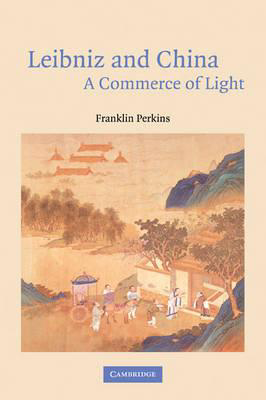
- Franklin Perkins, Leibniz and China: A Commerce of Light(Cambridge: Cambridge University Press, 2004).
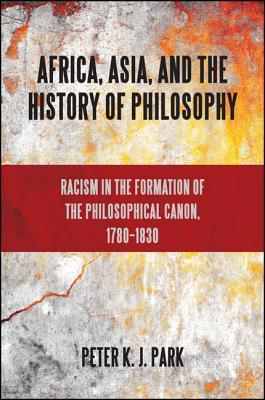
- Peter K. J. Park, Africa, Asia, and the History of Philosophy Racism in the Formation of the Philosophical Canon, 1780–1830(Albany: SUNY Press, 2013).
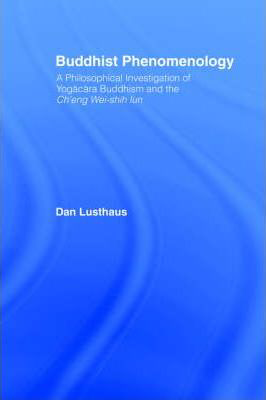
- Dan Lusthaus, Buddhist Phenomenology: A Philosophical Investigation of Yogacara Buddhism and the Ch'eng Wei-shih Lun(London: Routledge, 2006).
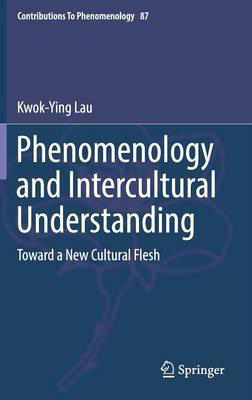
- Kwok-Ying Lau, Phenomenology and Intercultural Understanding: Toward a New Cultural Flesh(Dordrecht: Springer, 2016).
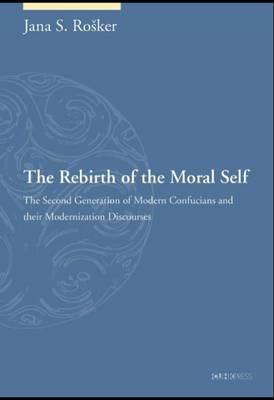
- Jana S. Rošker, The Rebirth of the Moral Self: The Second Generation of Modern Confucians and Their Modernization Discourses(Hong Kong: Chinese University Press, 2016).
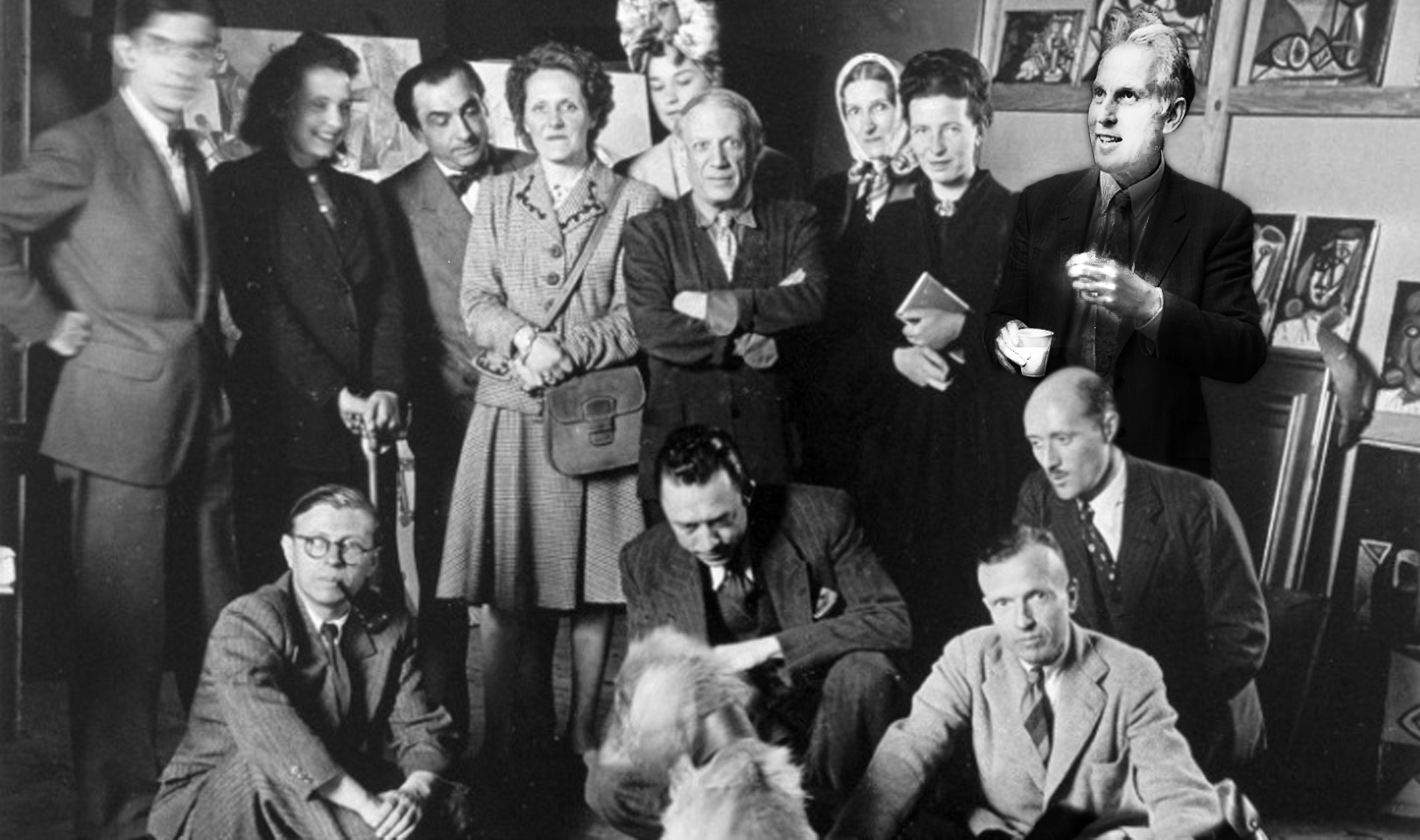
[Archive footage of interviewer with 3:AM 'End Times' series editorial board by Sir Lennicus Bibby]
ABOUT THE INTERVIEWER
Richard Marshall is still biding his time.
Buy his new book here or his first book here to keep him biding!
End TimesSeries: the first 302